The phrase “work experience is required” is one of the biggest challenges many young professionals are facing. It seems to be a vicious circle: one studies in an educational institution, gets a specialization but in order to work by profession, isrequired to have work experience. On the other hand, the position of employers is also understandable: the theoretical knowledge obtained in an educational institution is one thing, yet another thing is the ability to apply it in practice and face problems.
The only way to get out of this circleis the cooperation of employers, private companies and educational institutions. The private sector suggests what specialists are required and participates in the process of training of these specialists. This education model is called “dual” and applies to vocational education.
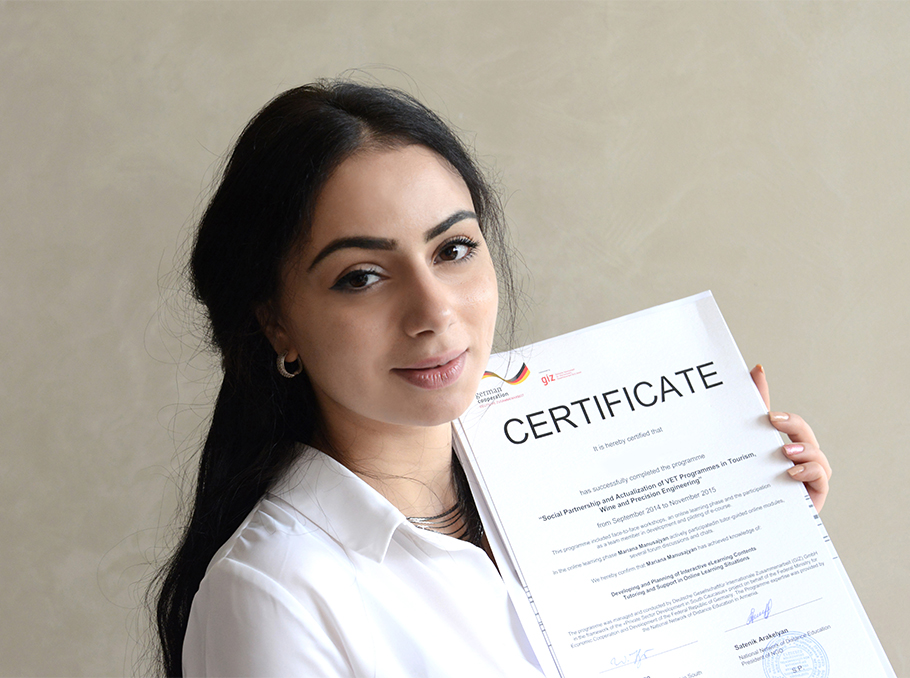
The piloting of the dual education system in Armenia began in 2017 within the cooperation of “Private Sector Development and Technical Vocational Education and Training in the South Caucasus” (PSD TVET) program implemented by Deutsche Gesellschaft für Internationale Zusammenarbeit (GIZ) and the Ministry of Education, Science, Culture and Sports of the Republic of Armenia. Now, Modernizing Vocational Education and Training in Agriculture in Armenia (MAVETA) program commissioned by the Swiss Development and Cooperation Agency (SDC) has also focused on the development of dual education.
Education in two environments
Dual education implies an education process in two places: in a vocational educational institution (college) and in a company operating in the sector. For example, if you are majoring in winemaking, you will spend part of the entire education process in the classroom, receiving theoretical knowledge, and the other part in a winery, personally participating in the preparation of wine. In the case of dual education, the period of gaining practical knowledge is not limited to a week or a month, like in the case of education internships or experience programs. The practical part is an inseparable component of the entire education process, and the student learns by working.
“The goal of the dual education model is to ensure stable and effective cooperation between the private and education sectors in order to meet the demand for qualified personnel. Private companies are involved from the beginning both in the development of curricula and in the education process itself. According to the logic of the dual education model, a student spends 40 percent of the entire period of study at a college or other vocational institution, and 60 percent of time works in a private company by his/her specialty. Of course, they should also be paid for that work,” says Aram Babayan, the “Private Sector Development and Technical Vocational Education and Training in the South Caucasus” Program (PSD TVET) Team Leader Armenia.
He notes that the dual education system is now implemented in the fields of winemaking, tourism, IT and precision engineering. From 2020, works have also launched in the transport and logistics sectors, and from 2022, the strategy for the production of footwear, leather and furniture is being developed.
“We are actively cooperating with state institutions, private associations, groups of companies and unions. The program does not support this or that company individually, the goal is to support the sector. It is very important to show private companies why they should become part of dual education. These companies are for-profit structures and it is quite normal for them to first evaluate the benefit they can get from this or that initiative. Raising high-quality employees who understand the work well and keeping them in the company in the future is exactly the “interest” that should attract them,” Aram Babayan says.
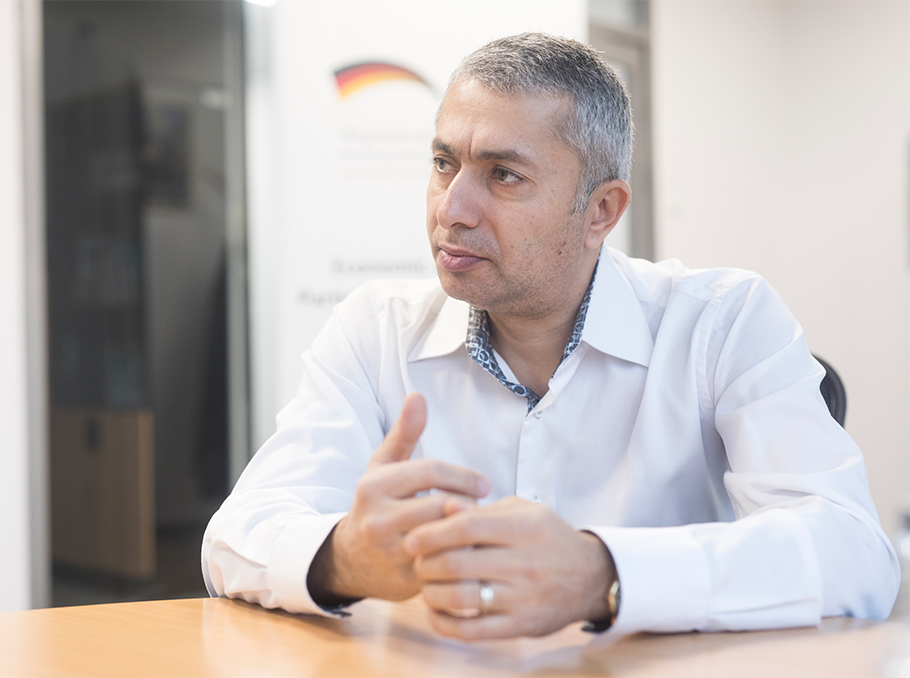 Aram Babayan
Aram BabayanPhoto: Mediamax
The main activities within the program are carried out outside capital Yerevan. The goal is the proportional development of the regions. Even more so, the target of tourism or winemaking is in the regions.
“Even in the case of IT specialties, we try to focus not on the capital, but on Vanadzor and Gyumri. We work with companies operating in local technology parks,” Aram Babayan says.
According to him, the development of vocational education is very important for the development of the economy. This is an opportunity to have a high-quality workforce that will start creating values after entering the economy.
“In the case of vocational education, we have the opportunity to educate young people who will master this or that profession at the age of 19 and will enter the labor market. To date, we have cooperated with more than 12 colleges and more than 60 private companies within the framework of the program. We have more than 600 graduates who studied under the dual education model. About 30 percent of them immediately got a job in the company they were educated.”
Dual education in agriculture
“Modernizing Vocational Education and Training in Agriculture in Armenia” (MAVETA) program is also working on the introduction of dual education in Armenia.
It is funded by a broad coalition of international and local organizations led by the Swiss Agency for Development and Cooperation (SDC), including the Austrian Development Agency (ADA), German Federal Ministry for Economic Cooperation and Development (BMZ), the Government of Armenia, Swiss Church Aid (HEKS/EPER) NGO, Izmirlian Foundation, Strategic Development Agency (SDA) NGO and Vanand Agro CJSC.
“MAVETA program aims to continue the reforms carried out in vocational education and training (VET) and introduce the dual education system in a number of areas of agriculture: veterinary medicine, milk and dairy products technology, farm work, agricultural machinery, dairy farm management and horticulture,” Artur Pokrikyan, Senior Coordinator at Swiss Cooperation for the South Caucasus Armenia Office, says.
He notes that the dual education system is quite developed in Switzerland, Germany, and Austria. Here, for example, VET students studying in the field of agriculture spend 1-2 days a week in a vocational educational institution, and the other days in the farms.
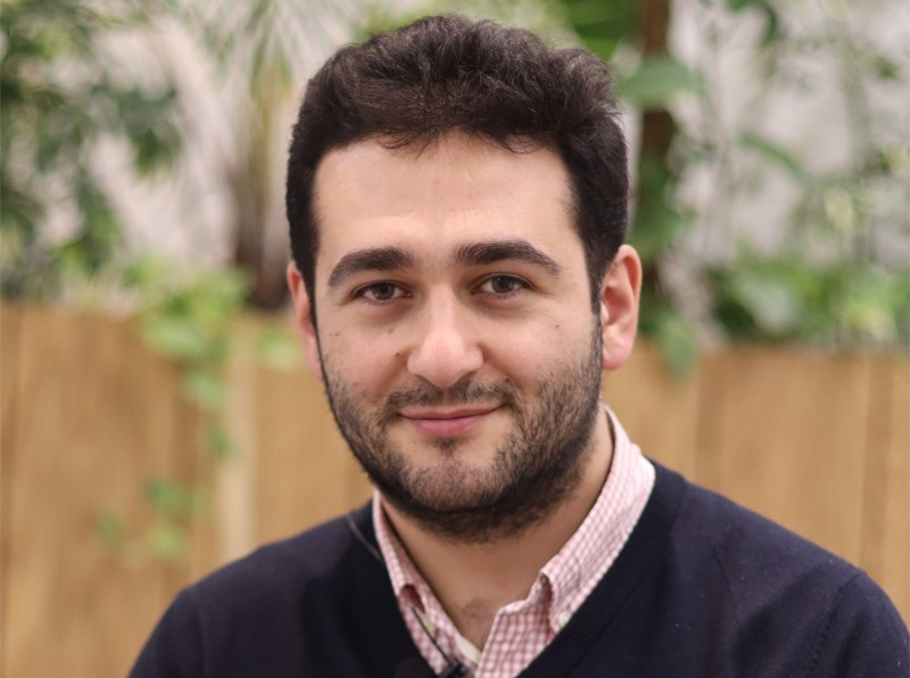 Artur Pokrikyan
Artur PokrikyanPhoto: Tsovinar Sirekanyan
“MAVETA program is also working on putting dual education on institutional foundations in Armenia, improving the laws and regulations, making them more in line with the requirements and principles of the dual education model,” Artur Pokrikyan says.
State approach to dual education
The Government of Armenia is also taking steps towards the institutionalization of dual education. According to the Minister of Education, Science, Culture and Sports Zhanna Andreasyan, the positive experience of implemented programs allows to continue working in this direction.
“The issue of expansion and continuous development of dual training, work-based learning is clearly fixed in the government’s program. Today we can already talk about the accumulated positive experience and satisfying results. In addition, the draft of the new law on vocational education and training that stipulates the legal regulations for the introduction of dual education has been presented to public discussion,” the minister says.
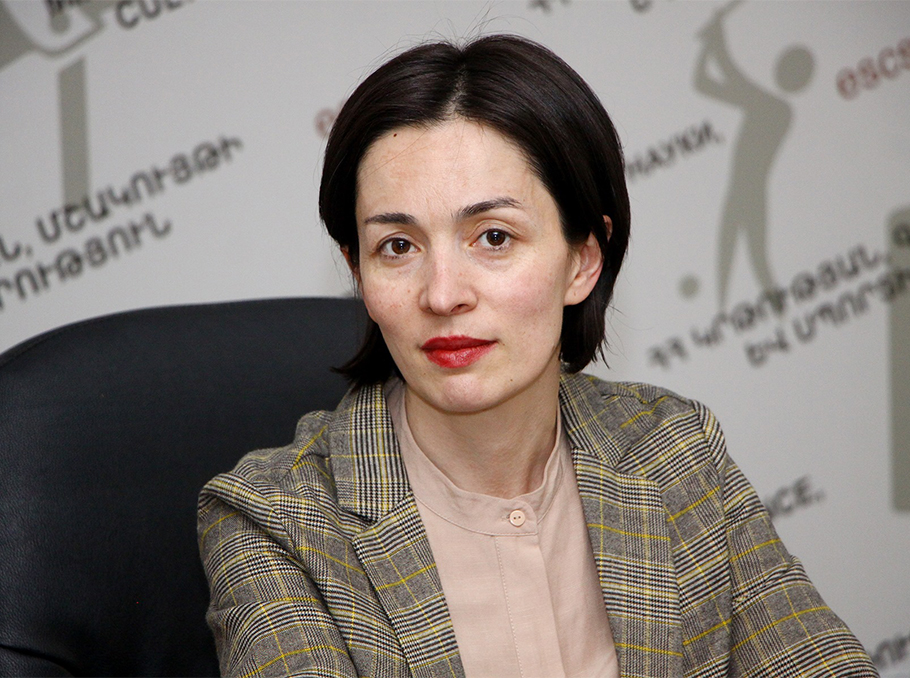 Zhanna Andreasyan
Zhanna AndreasyanPhoto: MoESCS
She notes that GIZ is a long-standing and effective partner of the Ministry of Education, Science, Culture and Sports in the introduction of dual education. Cooperation with private sector companies is also important.
“Cooperation between state and private structures is a field where we face constantly changing challenges. We must overcome them by finding effective mechanisms for working with the private sector, finding new formats of cooperation. Entrepreneurs and employers are our main partners in the VET sector. We are also ready for bold solutions. We see the need to test new management models in VET institutions. We are creating legislative grounds for discussing the development of management models by the private sector and with the participation of companies in this field.”
“Many graduates of the dual education model work in leading wineries”
The dual education system has been piloted in Vayots Dzor Regional State College since 2018. To date, 3 generations – about 40 graduates – have received dual education in winemaking.
“Wineries are also interested in this education model since it provides a good opportunity to have qualified employees in the future. Initially, three wineries cooperated with us in the dual education model, after this, others also showed interest,” the Director of the college, Argam Dovlatyan says.
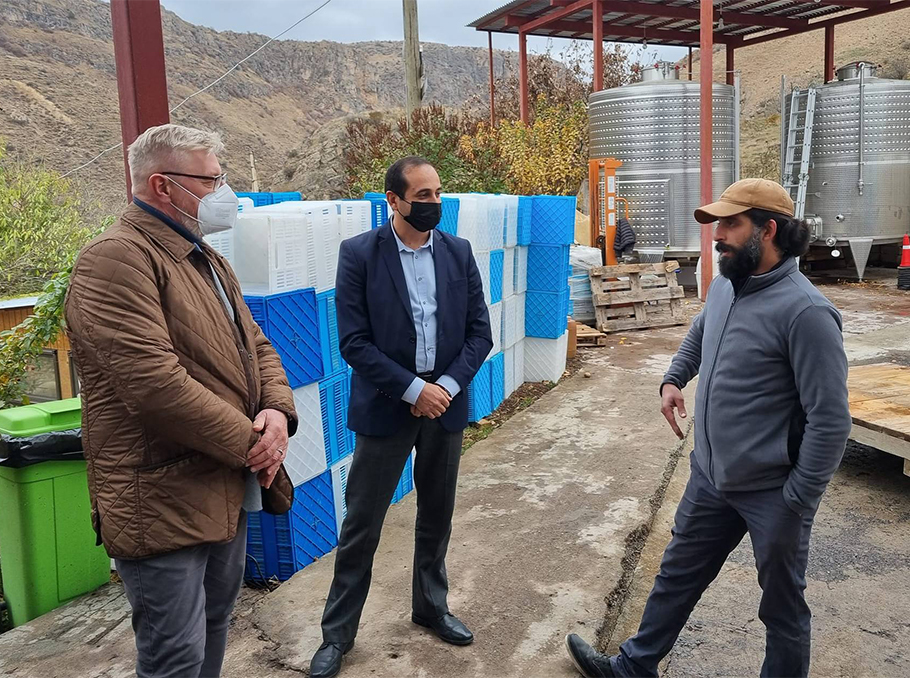 Argam Dovlatyan (in the center)
Argam Dovlatyan (in the center)Photo: Vayots Dzor regional college
He noticed that students receiving dual education are more active and interested in the profession they have chosen. They are aware of sectorial problems from the phase of education and offer the most innovative solutions.
Argam Dovlatyan says many of the graduates of the dual education model are currently working in the leading wineries of the region.
“Private Sector Development and Technical Vocational Education and Training in the South Caucasus” (PSD TVET) program is implemented by the Deutsche Gesellschaft für Internationale Zusammenarbeit (GIZ) GmbH on behalf of the Federal Ministry for Economic Cooperation and Development (BMZ).
MAVETA program started on December 3, 2021, with a preparatory phase that has been successfully summarized in August 2022. The 1st main phase of implementation started afterwards, which will last until August 2025 with total budget of CHF 8.3 million. MAVETA program works to anchor this dual education approach at the political and institutional level. Within the framework of the program, dual education has been introduced at Goris State Agricultural College, Sisian College of ANAU (Syunik), Stepanavan State Agricultural College (Lori), Berd State Multifunctional College (Tavush), Echmiadzin Craftsman State School (Armavir) and Yerevan College of ANAU.
The MAVETA project is funded by a broad coalition of international and local organizations led by the Swiss Agency for Development and Cooperation (SDC), including the Austrian Development Agency, the German Ministry for Economic Cooperation and Development (BMZ), the Government of Armenia, the Swiss Church Aid (HEKS/EPER) NGO, Izmirlian Foundation, the Strategic Development Agency (SDA) NGO and Vanand Agro CJSC.
The project’s implementing partners are the GIZ and HEKS/EPER with the involvement of SDA and the School of Agricultural, Forest and Food Sciences at the Bern University of Applied Sciences (HAFL).
Yana Shakhramanyan
















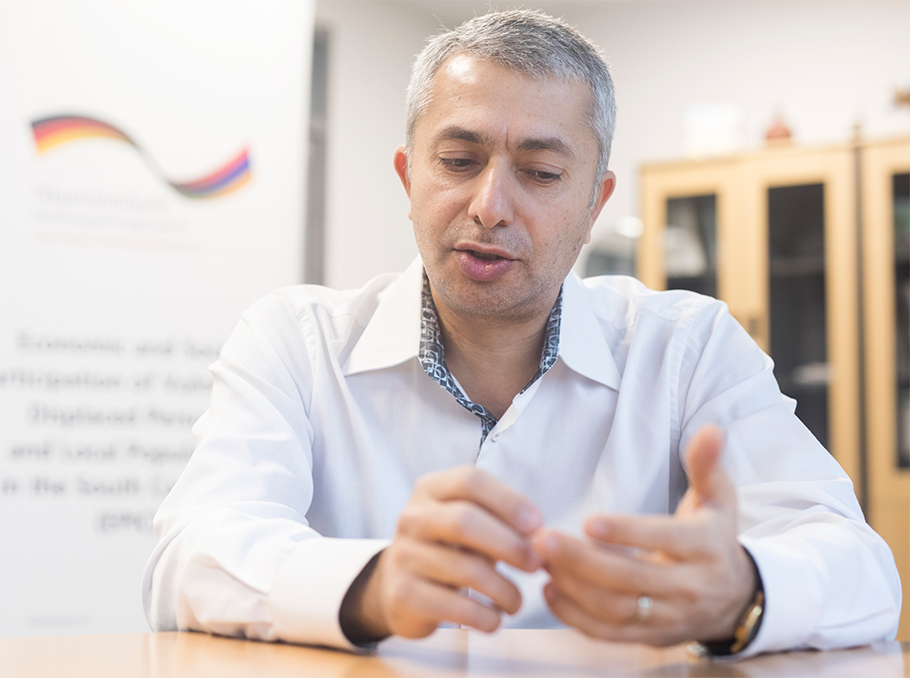






Comments
Dear visitors, You can place your opinion on the material using your Facebook account. Please, be polite and follow our simple rules: you are not allowed to make off - topic comments, place advertisements, use abusive and filthy language. The editorial staff reserves the right to moderate and delete comments in case of breach of the rules.